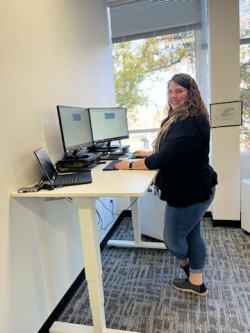How to Start an LLC in California
- Same-Day Filings
- Local Registered Agent Services
- Free Usable Business Address
So you’re looking to start an LLC in California. Here’s your step-by-step guide—and tips—on how to start your California LLC.
- Name Your California LLC
- Hire a California Registered Agent
- File Articles of Organization in California
- Get an EIN
- Establish Your Business Presence
- Open a Business Bank Account
Or you can hire an affordable local business formation service (like us!) to handle the nitty gritty for you quickly and accurately. That way, you can actually focus on running your business.
Start an LLC in California Now:
Quick, Affordable, Hassle-Free

California Registered Agent Services – Affordable & Reliable LLC Support
As registered agents, we’re the middleman between your business and the California Secretary of State. But our service doesn’t stop there. You can hire us to start your LLC in California!
Here’s the deal—yeah, you can totally work your way through the steps to starting an LLC in California with minimal financial cost. But you’ll likely run into some hiccups trying to start a California LLC on your own. That’s why we at Registered Agents of California strive to provide fast, comprehensive, and low-cost California LLC formation services. And we do it with a local touch, too. This is what we do for all of our clients:
- We handle California’s bureaucracy for you. You’ll have to figure out all of California’s state-specific business requirements, including California’s Annual Franchise Tax, the California Statement of Information, and more. But we won’t mince words: the bureaucracy can be a distraction from business. Hiring affordable local experts to provide registered agent services saves you time and money in the long run. To that end, Registered Agents of California includes free, pre-populated LLC documents to all of our clients.
- We list our business address instead of yours. If you choose to form your own California LLC, your personal information will become part of the public record when you file your California Articles of Organization. That means you’re going to end up having to deal with a mountain of junk mail, not to mention the fact that your home address is open to the public. That’s one of the primary reasons we offer free use of our permanent California business address to all of our clients.
- We include free digital mail forwarding. All of our registered agent clients get 3 free scans of business mail per year. We already provide same-day scanning of your registered agent mail as part of our service, but we allow clients to view 3 more non-registered agent scans. Either way, we scan and upload all important documents, so if you wanted something more comprehensive, check out our paid mail forwarding services.
- We make LLC maintenance and compliance quick and easy. When you form your LLC in California on your own, you’ll have to stay on top of your California annual reports along with all the other little headaches of maintaining a California business that add up to a major migraine. Our clients receive timely business compliance reminders through their secure online account. Then, when the time comes, we’ll submit your biennial Statement of Information for ZERO upfront fees.
Don’t get us wrong—California’s a great place to start a business because of its wide-ranging opportunities for entrepreneurs, millions of residents (potential employees and customers!), and a GDP that rivals the top 5 nations in the world. But there’s no sugarcoating the fact that a state with such a big economy is also going to be engulfed in red tape.
We can cut through that red tape. Just click below and we’ll get to snipping immediately.
Sit Back, Relax… and Let the Local Experts Form Your CA LLC!
How to Form an LLC in California: 5 Easy Steps
Let’s say you want to start an LLC in California and you don’t mind impromptu solicitations at your personal home address. And you just so happen to have the time and patience to navigate California business filings. We fully support that entrepreneurial, bootstrapping spirit.
Below you’ll find everything you need to fulfill the business requirements of forming an LLC in California, whether you choose to go about it your own or have our local business formation service handle all the dirty work.
1. Name Your California LLCWhen it comes to naming your California LLC, you have a lot of freedom. But you do need to meet a handful of California’s legal requirements. |
 |
Your LLC name must:
- Include an “identifier.” This just means that your business name needs to include your entity type. For an LLC, you can choose whatever variation of “limited liability company” suits your style: “LLC,” “L.L.C.,” “Limited Liability Company,” “Ltd. Co,” etc.
- Exclude any deceptive words. California won’t let you include words in your LLC’s name that suggest your business is a government institution, insurer, bank, or charitable foundation. This means you can’t use words like “bank,” “insurer,” or “municipal.”
- Be unique. If someone else is using your desired business name, you’ll need to choose a new business name. You can’t get around this problem by switching up punctuation or tacking on “the” to the beginning of your business name—California prohibits using a business name that is “deceptively similar” to another business name registered with the California Secretary of State.
To learn more, see the California Code of Regulations on Business Names.
How do I know if my California business name is unique?
You can search for business name availability by using the California Secretary of State’s Business Search.
Can I get a DBA name when I form my LLC?
Yup! DBAs, which are often referred to as “trade names” of “fictitious names,” allow you to do business under a different name than the one your LLC is registered as. If you’re thinking of getting a California DBA, we can handle that for you. After you hire us, you can request “Trade Name Service” through your online account for $125 plus state fees and we’ll file your Fictitious Business Name (FBN) statement for you.
Tip: Reserve your CA business name in advance.
Holding off on forming your LLC for tax reasons? Or just not quite organized yet? You can get a little more sleep at night knowing that your perfect business name is reserved by filing the Name Reservation Request with the California Secretary of State. This costs $10 and will reserve your California LLC name for 60 days.
2. Hire a California Registered AgentCalifornia LLCs are required to appoint a registered agent (called an “agent for service of process” in California) to accept legal mail on behalf of your business. You’ll need to have your registered agent’s information ready to go before you complete your formation documents. |
 |
A California registered agent must:
- Have a physical street address
- Keep regular office hours
- Agree to accept (and forward!) legal mail on your behalf
If you meet these requirements, you can be your own registered agent. There’s one drawback, however—your address will go on the public record for all the world to see (including aggressive marketers). Hire us for California Registered Agent Service ($50/year) and we’ll let you use our California business address on your public documents.
Why do I need a California Registered Agent?
California law requires you to appoint a California registered agent, and the California Secretary of State won’t accept your formation documents unless you have one. Why? Because if you get served legal paperwork (like a summons or lawsuit), someone needs to be present to accept it during normal business hours. Many business owners log a majority of hours outside of a traditional office, making it difficult to accept service of process. If you hire us, we’ll accept legal paperwork on your behalf and scan it into your secure online account that day.
Instant Setup – Get a CA Registered Agent in Minutes!
3. File Articles of Organization in CaliforniaIf you have your LLC name and your California registered agent information ready to go, you can move onto the next step: filing Articles of Organization with the California Secretary of State. |
|
This paperwork officially registers your California LLC with the Secretary of State. It’s the step that establishes your business as a separate legal entity. In California, you can submit your Articles of Organization online, by mail, or in person. You can fill out and submit the Articles of Organization yourself or hire us to do it for you for $240, state fees included ($70 Articles of Organization fee and $20 Statement of Information fee). You’ll also get one year of registered agent service, too.
Tips for Filling out the California Articles of Organization
The California Articles of Organization seem straightforward enough, but there are a few sections that tend to trip people up. If you make a mistake, the California Secretary of State will likely reject your filing (and set you back a few weeks). Here are our tips for getting it right the first time. To fill out your Articles of Organization, you’ll need to provide the following:
- Your LLC business name. If you followed the tips in step one of this guide, you should be ready with a clever (and legally compliant) business name to fill in here.
- Your LLC business address. Don’t make a rookie mistake here by listing a PO box. Your business address must be a physical street address in the state of California. And remember: the address you list here will be posted online. Your business address doesn’t have to be where you actually work, though. Hire us, and we’ll provide a California business address for you to use at no extra cost.
- A mailing address. This isn’t required, but if you want to list a mailing address, you can. It’s fine to list a PO box here.
- Your Agent for Service of Process. If you’re stumped on what to put here, go back to step two of our guide. You’ll need to list your California registered agent information here, including the agent’s physical street address. Again, no PO boxes allowed. And yes, this address goes on the public record.
- Your LLC’s management structure. This is just a box you check, but it’s important. It indicates whether your LLC will be managed by “one manager,” “more than one manager,” or “all limited liability members.” Members are the owners of an LLC, while managers are appointed by members to make operational decisions on behalf of the LLC.
- Signature from an organizer. Don’t let the word “organizer” confuse you. The organizer is whoever is filling out this form on behalf of your LLC. Hire us, and we’ll sign here.
How much does it cost to file Articles of Organization?
Typically, filing Articles of Organization in California costs $70.
Tip: File your Initial Statement of Information now, too.
Within 90 days of forming a California LLC, you’ll need to file an Initial Statement of Information for $20. It’s easy to put off, but you could get hit with a $250 late fee if you forget. We recommend filing your Initial Statement of Information now while you’re already up to your eyeballs in paperwork. That’s how we do it—hire us, and we’ll file your Articles of Organization and the initial statement. Then, when the time comes, we’ll file your biennial Statement of Information for just $100 plus state fees. Never worry about deadlines or state penalties. The best part? You’ll pay ZERO upfront fees. If you’d rather file yourself, you can easily cancel business compliance service inside your secure account.
The Easiest Way to Get a California LLC? Hire Us!
4. Get an EINAn Employer Identification Number (EIN) is the number the IRS uses to identify your LLC for tax purposes. Not every business is required to obtain an EIN (some business owners just use their SSN), but getting one is easy and helps separate you from your LLC. |
|
Remember, one of the key reasons for starting an LLC in California rather than operating as a sole proprietorship is to secure your personal assets from any liabilities your business incurs. That’s why it’s called a “limited liability company.” Getting an EIN is a crucial step to take in separating your business from your personal assets. It will come in handy for paying taxes, setting up a business bank account, and applying for local permits and licenses. You can apply for an EIN with the IRS for free.
Tip: Let us get your EIN.
When you hire us to form a California LLC, you can add an EIN to your order for an additional $50.
5. Establish Your Business PresenceIf you haven’t already launched your new LLC online, make time to do it once your business name has been approved and finalized. Regardless of your industry, your online business presence (specifically a company website) can have a massive impact on your success. |
|
Tip: When you hire us to form your California LLC, we include our business presence services for no additional upfront cost.
Our business presence package includes: your business domain, a customizable business website, business email addresses at your domain, and business phone service.
6. Open a Business Bank AccountThis isn’t exactly a legal requirement, but we can’t recommend it enough. If you have an LLC in California, you should open a separate bank account for your business. |
|
If you let your business money intermingle with your personal money, you’re eroding the legal separation between you and your business. This could potentially damage your limited liability status. It might not seem like a problem now, but if you ever face a lawsuit, a court might hold you personally liable for the debts of your business.
How do I open a California business bank account?
To open a business bank account, you’ll likely need to show the bank your California Articles of Organization, your LLC Operating Agreement, and your EIN.
Next Steps
Your LLC is on the books in California. Now what? Depending on the nature of your business, there may still be California state requirements to take care of.
- Businesses with employees will need to register for a payroll tax number with the California Employment Development Department.
- Businesses selling “tangible personal property” need to register for a Seller’s Permit with the California Department of Tax and Fee Administration.
- All businesses in California have to pay the annual California Franchise Tax (a minimum of $800).
- California LLCs are required to submit a Statement of Information every two years.
Once your state requirements are covered, you can move on to researching your local county or city requirements. For example, many municipalities in California require businesses to obtain a Business Tax Certificate to pay city business taxes. You’ll need to get in touch with your local city government to find out your local requirements. We have guides to Starting a Business in Los Angeles, Starting a Business in San Diego, and Starting a Business in San Francisco.
Overwhelmed?
Get in touch! Our business experts here in Sacramento, CA form LLCs in California every day, and we’d love to help.
Stress-Free LLC Formation + Business Address + Mail Forwarding




